On Wednesday, September 28th, MassBio hosted its 3rd Annual Patient Advocacy Summit. Held at Novartis, the one-day event featured conversations centered around building a patient-centered ecosystem by sharing our stories. We welcomed Lisa Genova, neuroscientist and author of NYT best-sellers Still Alice & Inside the O’Briens. Five patients shared their first-hand accounts with us as we listened to their experiences and insights. We also made #PATIENTDRIVEN® trend on Twitter!
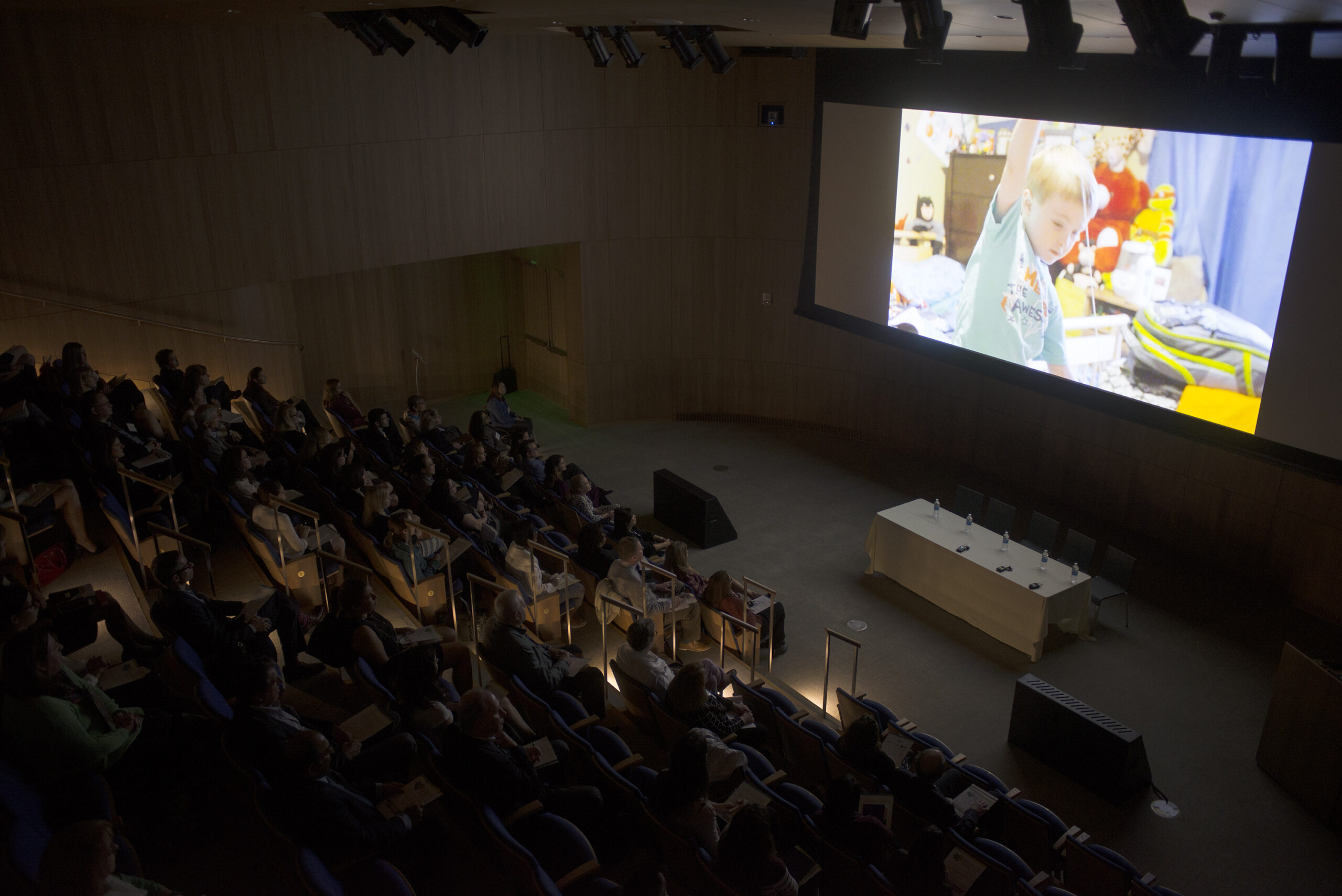
After a welcome from Bob Coughlin, President & CEO of MassBio, the 2016 Patient Advocacy Summit kicked off! We began with a screening of Rare in Common, a film project organized and directed by Cambridge Biomarketing that tells the story of five families, honoring their struggles, their strength, and their hope for the future as they face rare and misunderstood conditions. The emotional film was a great start to the Summit, offering motivation to those in attendance to continue to find cures.
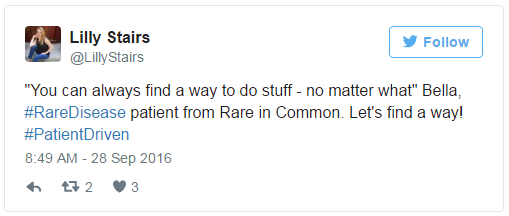
Our first panel of the day focused on Patient Advocacy Beyond US Borders. Moderated by Heather Gartman of inVentiv Clinical, the panel reminded us that worldwide, we are a vast community, and together, we are stronger. “It’s critical in rare diseases to work together,” said Claudia Hirawat, Chair of the International Circle of Ambassadors at EURORDIS. “The world is so small today,” she pointed out to the room. Ellie Strock of Voluntis shared the impact of technology, pointing out that of the thousands of health apps available to consumers, only 120 are approved by regulators, and evidence backs just 20.
Panelists reminded the audience of how cultural differences should be considerations for those in industry – for example, Americans tend to speak fast and tend to share openly. Michelle Rhee of Takeda Oncology shared that even the term “patient advocacy” can have a different meaning depending on where you are in the world. Sometimes it relates to patient education, other times it deals with governmental advocacy.
The panel concluded with advice for those involved in patient advocacy: engage early and often.
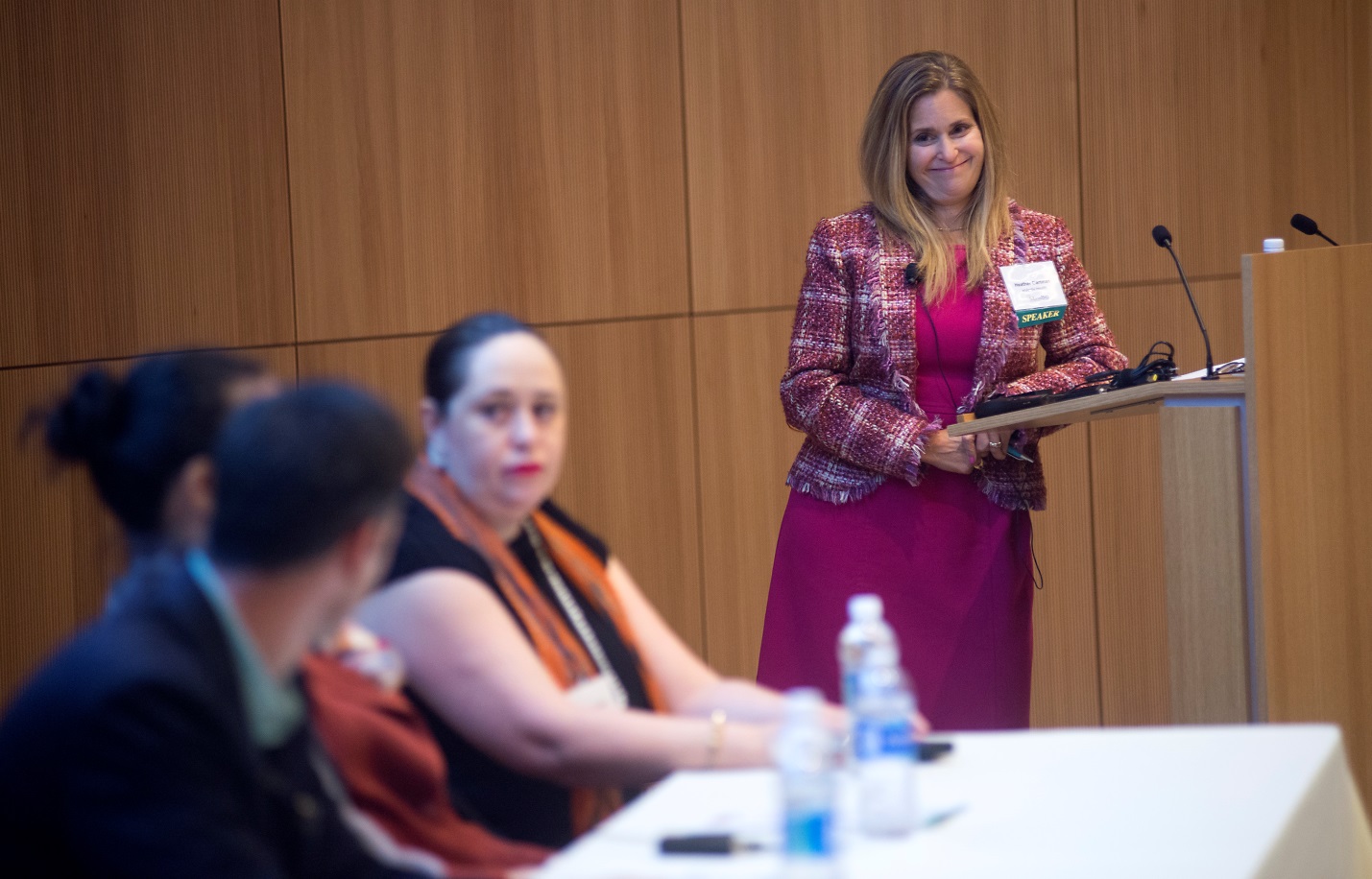
Following the panel, Michelle Rhee stayed on stage to share her patient story, where she explained how having cancer literally saved her life.
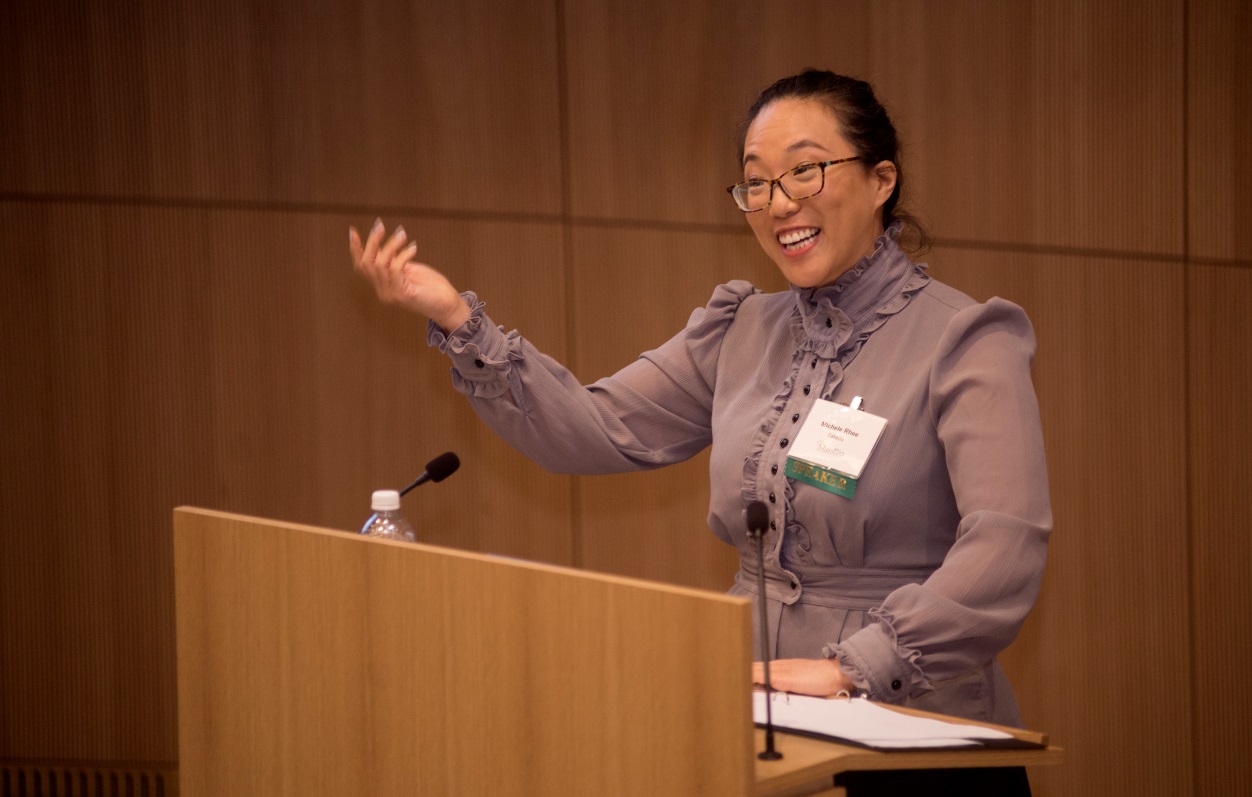
Next, we welcomed healthcare innovation enthusiast Lesley Solomon, who is on a personal mission to find a cure for food allergies. Justine Levin-Allerhand of the Broad Insitute joined Lesley to discuss the Food Allergy Science Initiative (FASI), where a plan is being developed for industry consortium to support the huge, unmet need of curing food allergies.
Cancer Survivor Dan Schorr took the stage next and shared his strategy for fighting cancer: humor with a tumor. Dan’s story drew both laughter and tears from the crowd as he shared his very personal journey with cancer and how it affected his perspective on life. Dan concluded his story by telling everyone in the crowd that what we’re doing as an industry genuinely matters.
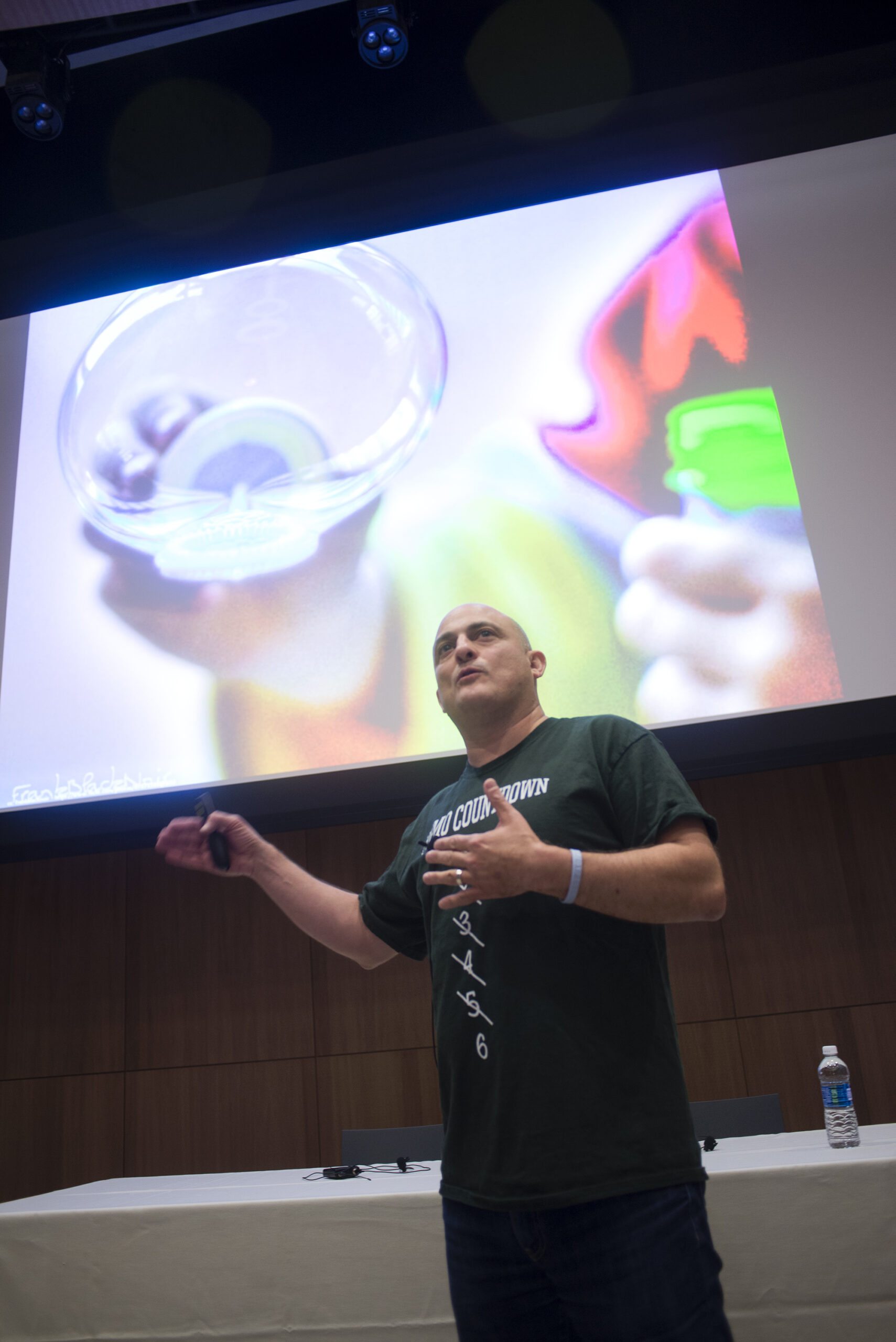
The Summit continued with a panel on Startup Best Practices in Patient Advocacy, where Kathy Gram of Snow Companies discussed the importance of an organization-wide dedication to patient advocacy: “Patient advocacy must come from the top down,” she said. “Leadership must walk the talk.” Henk Schuring of Sanofi Genzyme added that patient advocacy “should be in your genes, in everything you do” – emphasizing the term isn’t just for marketing purposes. Alan Gilstrap of Akcea shared that he makes sure his colleagues have access to patient stories and believes that it changes how they face their job every day.
During lunch, attendees admired portraits by Rare Disease United Foundation’s #RareNotLess campaign. The artwork featured paintings of rare disease patients. We were also fortunate to welcome Lucas, one of the artists, to the event, who painted a patient's portrait using single dots with syringes.
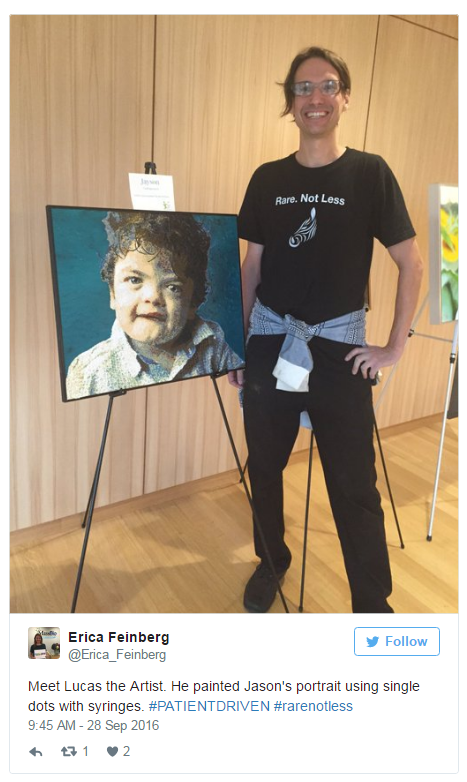
Keynote speaker Lisa Genova, neuroscientist and author of NYT bestsellers Still Alice and Inside the O’Briens drew the crowd back in after lunch as she shared the research process that goes into each of her literary works. Lisa also shared the profound impact her research has had on her: “People with life-threatening illnesses have taught me how to live,” she explained. Lisa advised the group to focus on meaningful and authentic connections – no more small talk because some patients simply don’t have time for that.
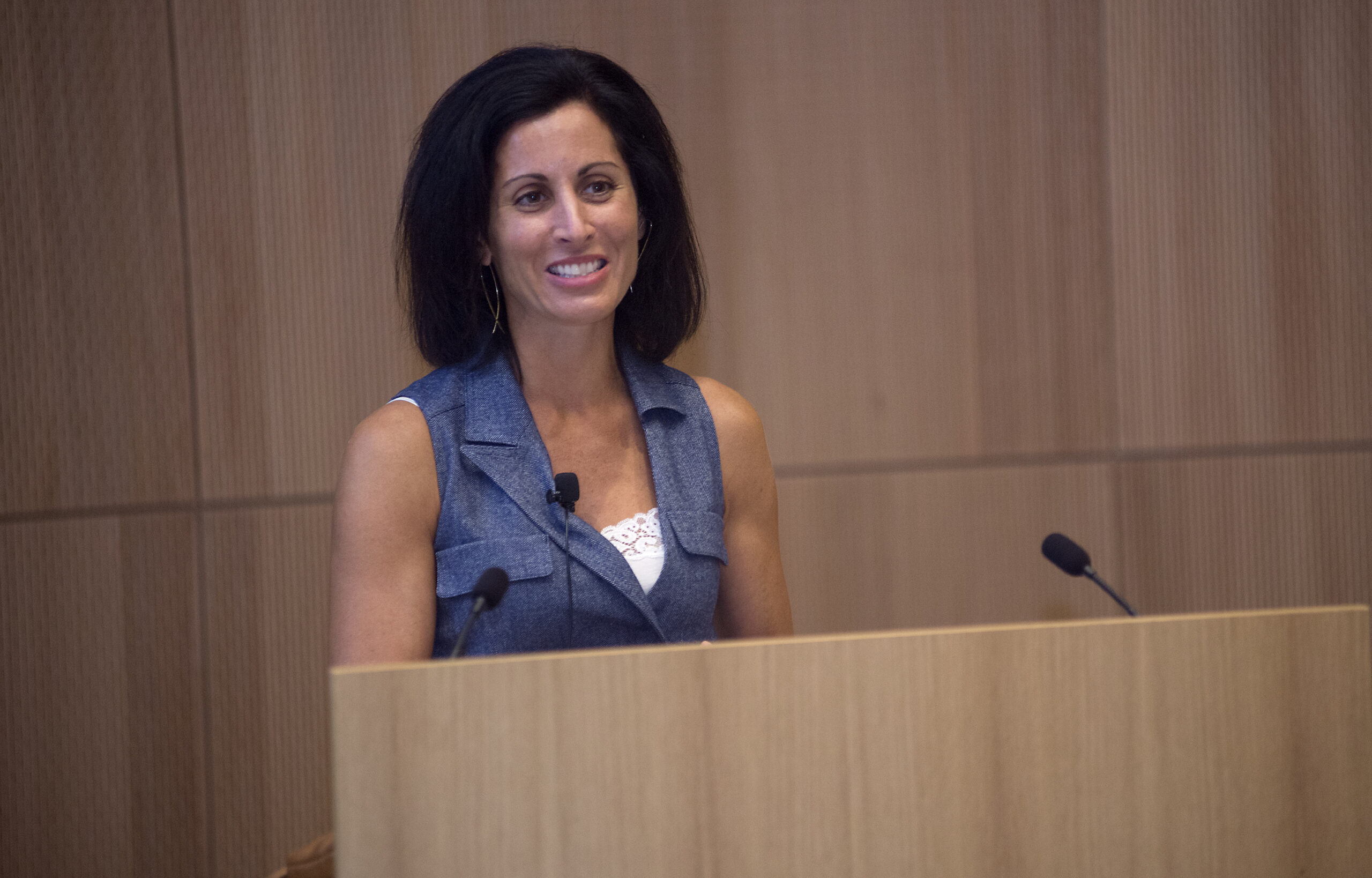
Following Lisa was former news anchor Kelley Tuthill, who told her patient story. Kelley shared her experiences as a cancer survivor and ended with an inspiring message: “There is life after cancer,” she explained.
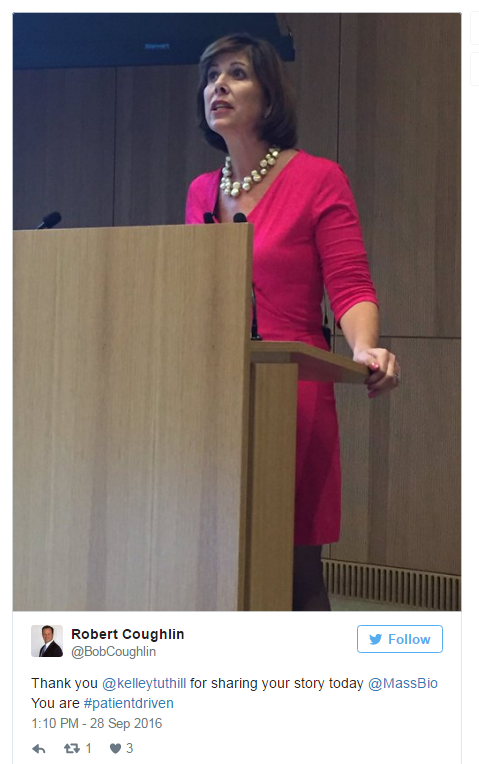
Next, we heard from panelists who discussed taking therapies into the clinic. The conversation included the importance of including patients at the start of drug development, in trial design and communicating trial endpoint decisions clearly to NGOs.
Following the panel we heard from representatives of Takeda Oncology, Cure Magazine and the Multiple Myeloma Research Foundation, who recently collaborated to bring patients up Mount Kilimanjaro. Moving Mountains for Multiple Myeloma pushes the limits to raise awareness and funds for the disease.
Next, we heard from Tracy Seckler of Charley’s Fund, who added her experiences as a mother of a son with Duchenne. Kara Malcom of Novartis joined Tracy on the panel and emphasized the importance of putting the patient first: “we need to reach out to our patients,” she shared. “Patients shouldn’t have to do the work.” The panel focused on The Rules & Tools of Patient Input and focused on the collaboration and synergy between patient groups and biotech organizations.
Paul Kidwell told his moving story as a husband, father and caregiver all at once. Paul spoke about his wife’s early Parkinson’s diagnosis and how he approached sharing the news with his son.
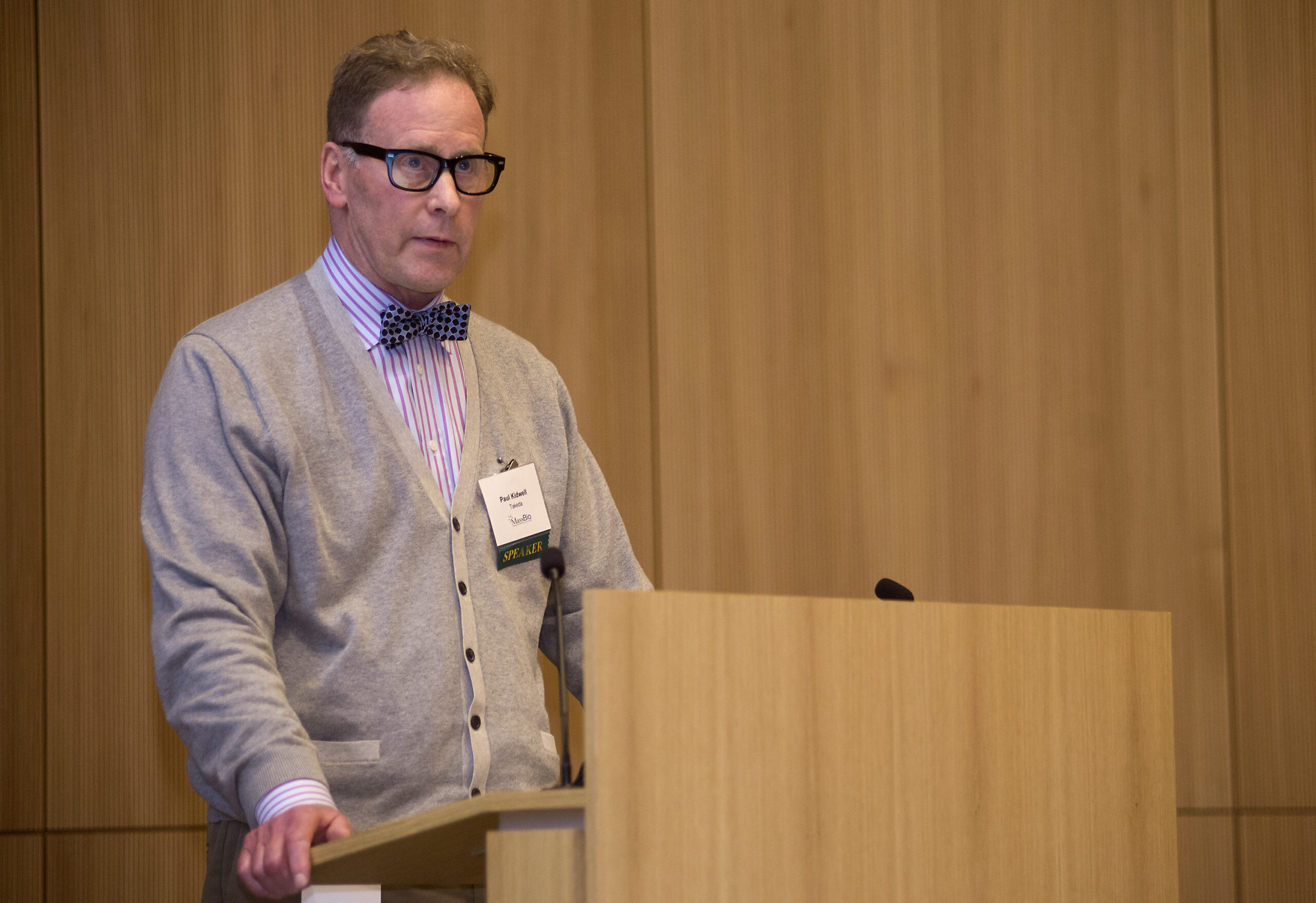
The final panel of the day was a fireside chat on patients and policy. We wrapped up the summit with Kenneth Anderson of Dana-Farber, Paul Giusti of the Multiple Myeloma Research Foundation and our own President & CEO, Bob Coughlin. Paul Giusti shared that although considerable progress has been made in our industry, we need to continue the momentum because our jobs are not done yet. The panel was a great conclusion to an inspiring day – Kenneth Anderson summed it up well: “You [patients] turn your personal tragedies into hope.”
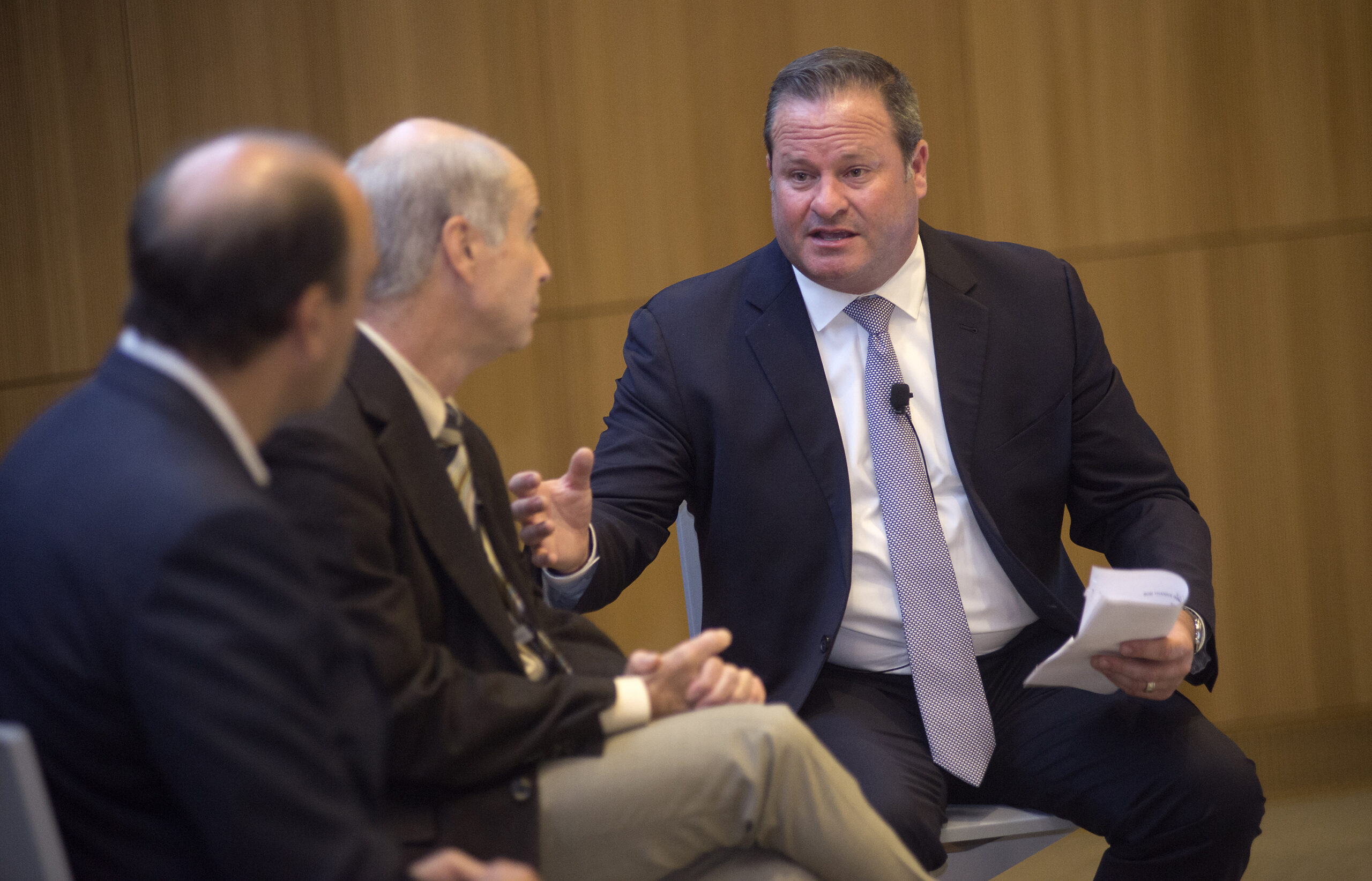
We concluded the Summit with a networking reception for attendees and speakers. From all of us at MassBio, thank you for making the Patient Advocacy Summit a success and inspiration for patients and folks in industry alike!
You can view a roundup of all the tweets from the event! We've curated a list, available here.